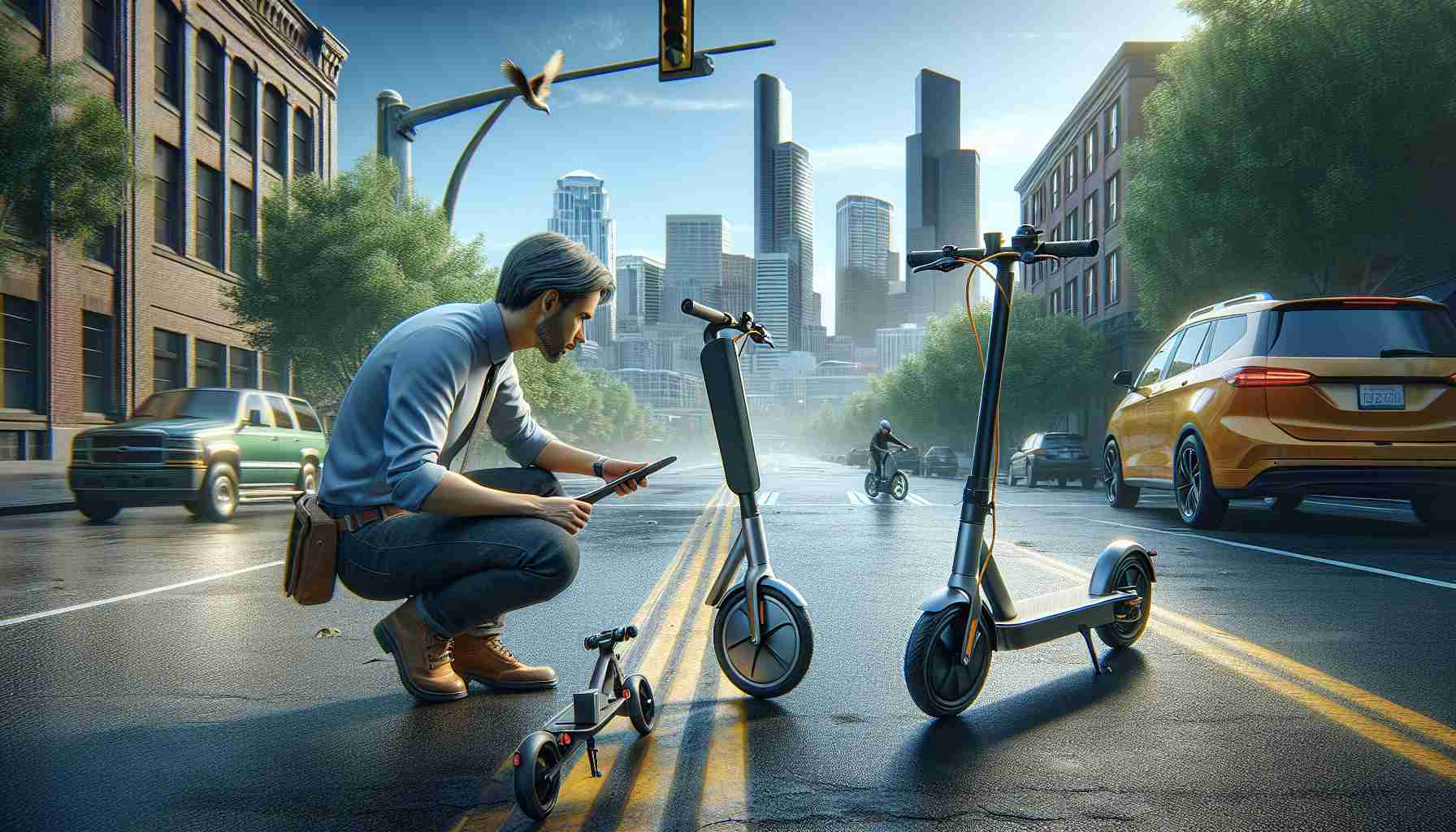Seattle’s streets have seen a surge in the popularity of electronic bikes and scooters in recent years. These convenient modes of transportation have become a go-to choice for many commuters and hobbyists in the city. However, along with their increasing usage, there has been a rise in the number of fires associated with these lithium-ion battery-powered devices. The Seattle Fire Department is now urging caution when using and storing these vehicles.
Last year, Seattle Fire responded to 22 fires related to e-bikes and e-scooters, with nearly half of them occurring in apartments and houses. The department has already dealt with six incidents of this nature in the current year. The unique challenge with these fires is that simply using water to extinguish them is not sufficient. Due to compromised battery cells, they can reignite moments after being extinguished.
Professor Daniel Schwartz from the University of Washington emphasizes that these vehicles often run on low-quality batteries. While they carry a significant amount of energy, they are mass-produced with fewer engineering and safety standards compared to higher-priced batteries. This raises concerns about their reliability and safety.
The U.S. Consumer Product Safety Commission has recently issued a warning about Unit Pack Power (UPP) batteries. These after-market lithium-ion batteries, commonly used to power e-bikes, have led to reports of fires and significant property damage. Manufactured in China, these batteries have not been certified by accredited laboratories to ensure proper safety standards.
The Seattle Fire Department underlines the importance of handling these batteries with care. They can reach extremely high temperatures, burn at thousands of degrees Fahrenheit, emit toxic gases, and cause adjacent cells to overheat, leading to a chain reaction known as thermal runaway.
To mitigate these risks, the City of Seattle has implemented a ban on throwing lithium-ion batteries in the garbage. Instead, they must be disposed of through a designated recycling program. Other cities, including New York and San Francisco, have adopted similar measures due to the potential fire hazards of these batteries.
As e-bike and e-scooter usage continues to increase in Seattle, it is crucial for riders to be aware of signs of battery trouble, such as smoke, swelling, strange smells, or batteries not holding a charge. Seattle Fire offers safety tips, including keeping devices away from hot or flammable objects, using listed and approved devices, and following manufacturer instructions. They also advise against tampering with batteries and strongly emphasize the importance of proper battery disposal and recycling.
As these popular modes of transportation become more prevalent in our cities, ensuring safety measures are followed is essential to prevent accidents and fires caused by lithium-ion batteries.
The electronic bike and scooter industry has witnessed a significant surge in popularity in Seattle over the past few years. As these modes of transportation become go-to choices for many commuters and hobbyists, the Seattle Fire Department has noticed a concerning increase in fires associated with these lithium-ion battery-powered devices. In response, they are urging caution when using and storing these vehicles.
The Seattle Fire Department responded to 22 fires related to e-bikes and e-scooters last year, with nearly half of them occurring in apartments and houses. This year, they have already dealt with six incidents of this nature. These fires present a unique challenge as simply using water to extinguish them is not sufficient. Compromised battery cells can cause them to reignite moments after being extinguished.
According to Professor Daniel Schwartz from the University of Washington, e-bikes and e-scooters often run on low-quality batteries. While these batteries carry a significant amount of energy, they are mass-produced with fewer engineering and safety standards compared to higher-priced batteries. This raises concerns about their reliability and safety.
The U.S. Consumer Product Safety Commission has recently issued a warning about Unit Pack Power (UPP) batteries, commonly used to power e-bikes. These after-market lithium-ion batteries, manufactured in China, have led to reports of fires and property damage. They have not been certified by accredited laboratories to ensure proper safety standards.
Handling these batteries with care is of utmost importance. They can reach extremely high temperatures, burn at thousands of degrees Fahrenheit, emit toxic gases, and cause adjacent cells to overheat, leading to a chain reaction known as thermal runaway.
To mitigate these risks, the City of Seattle has implemented a ban on throwing lithium-ion batteries in the garbage. Instead, they must be disposed of through a designated recycling program. Other cities, such as New York and San Francisco, have taken similar measures due to the potential fire hazards associated with these batteries.
As the usage of e-bikes and e-scooters continues to increase in Seattle, it is crucial for riders to be aware of signs of battery trouble, such as smoke, swelling, strange smells, or batteries not holding a charge. Seattle Fire offers safety tips, including keeping devices away from hot or flammable objects, using listed and approved devices, and following manufacturer instructions. They strongly advise against tampering with batteries and stress the importance of proper battery disposal and recycling.
Ensuring that safety measures are followed becomes increasingly important as these popular modes of transportation become more prevalent in our cities. This is crucial to prevent accidents and fires caused by lithium-ion batteries.
For more information about the dangers associated with lithium-ion batteries and how to handle them safely, visit the Seattle Fire Department’s Battery Safety webpage.







